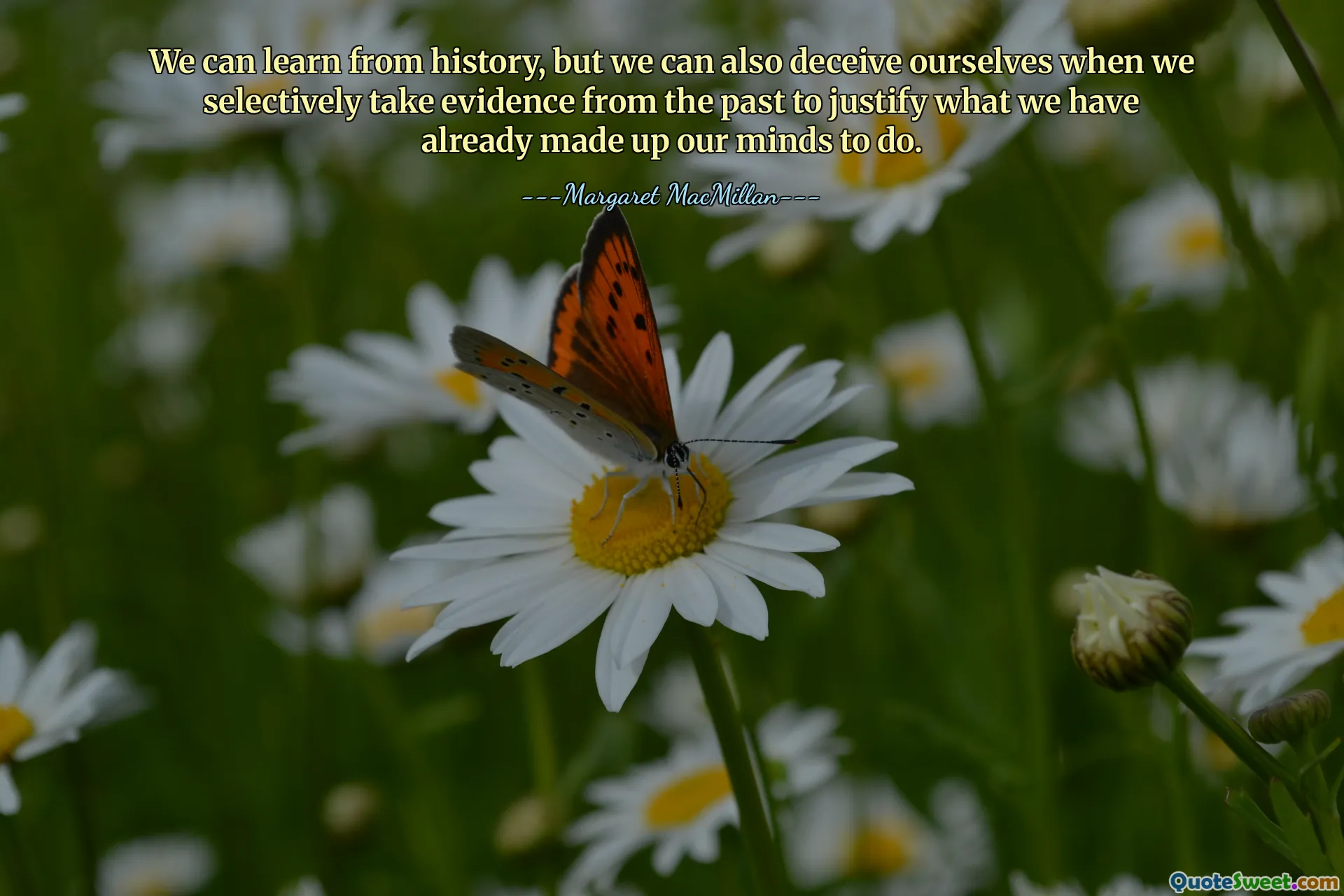
We can learn from history, but we can also deceive ourselves when we selectively take evidence from the past to justify what we have already made up our minds to do.
This quote underscores a vital aspect of how humans interact with history and the lessons it offers. While history can serve as a valuable guide, it is often manipulated by individuals or groups to support preconceived notions or actions. Our cognitive biases, particularly confirmation bias, lead us to cherry-pick historical facts that reinforce our beliefs, while ignoring or dismissing evidence that might challenge or complicate those beliefs. Such selective engagement with history hampers true understanding and can perpetuate misinformation. Recognizing this tendency is crucial for fostering critical thinking, especially in fields like politics, education, and personal decision-making. When examining past events, it’s essential to approach history with an open mind and a comprehensive perspective, rather than seeking to justify existing plans or biases. Only then can we hope to learn genuinely from the past, rather than simply reaffirm our own biases. This quote calls for humility and honesty in historical interpretation, emphasizing that the past should inform us rather than be manipulated to serve current agendas. Embracing a more holistic approach to history not only enriches our knowledge but also helps in making more ethical and informed choices in the present and future, fostering wiser societies that understand their complexities instead of oversimplified narratives.











